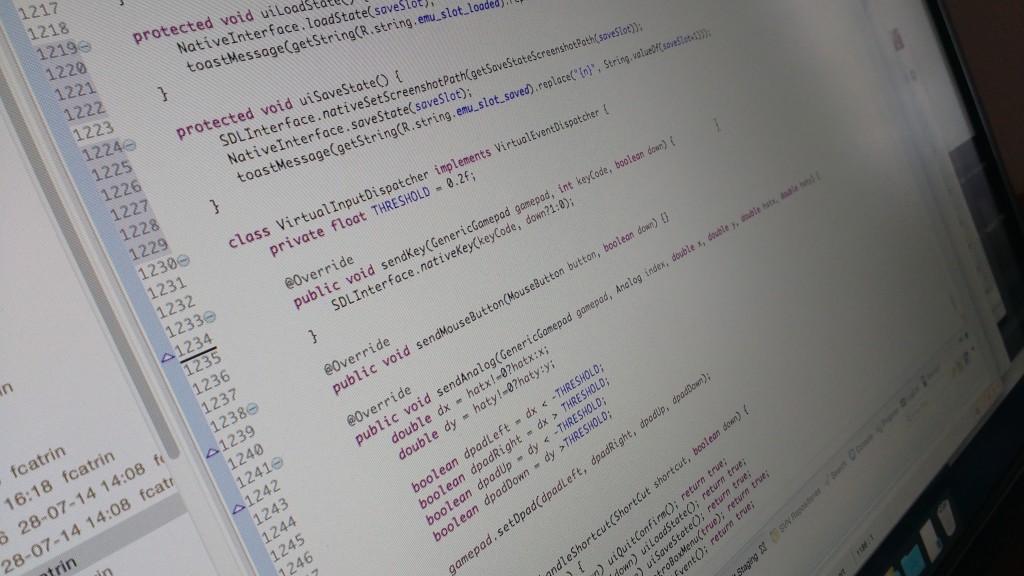RetroX open source emulators and libs now on github
RetroX is not an emulator in itself, but a front end for existing emulators. There are many front ends for emulators but what makes RetroX different is that the emulators have been modified to meet “the RetroX standard” like having support for custom controls, Android TV devices, RetroX save/load progress and more.
These modifications are possible because these emulators are released with open source compatible licenses, so they grant rights to modify the code and distribute the derivate products under certain conditions. One of these conditions is giving the source code back and we have been doing it since the commercial release en 2015.
But we could do it better.
Since today, the code will be available through their own repositories in github, and thanks to git subversion support the whole change history has been kept, so anyone interested will be able to see what changes we did to each emulator.
We didn’t make this step before due to our lack of git abilities, but since I started to use git and github everyday the move just seemed natural. Sure we would like to do more about it, like helping integrate some fixes to the upstream projects but, we are going step by step on this as the time allows.
For such a job to be possible we should have tracked the source code as clones of the original repositories from the beginning, but as we didn’t use git until now that track is lost… Unless someone gives advice about how to create that link. At least, the work on new emulators will have this track.
RetroX libraries are now open source
As per license requirements, all the code that is linked to the emulators has been made open source as well. So we are proud to announce that the RetroX libraries that help make an emulator to be RetroX compliant now has been released as LGPL 2.1. on github.
Want to help?
Now that this code is shared with the proper tools, we see that new opportunities arise:
- People will be able to add their favorite emulators to RetroX (more details below)
- People requesting fixes to existing emulators will be able to take a look and give some help directly from the source code
- Bugs or missing features on the upstream emulators now can be extracted from our changes, with a bit of effort but doable.
Adding new emulators
We encouraged ourselves to do this step also to give other people the possibility of adding emulators that we don’t have planned to add in the near term. Some time ago we published our roadmap for 2017 and we found that it was very limiting that some people have to wait until next year to see their emulators being added to RetroX.
We will work on the emulators in that list but now other people will be able to work on emulators that are NOT in that list. Here we are thinking of emulators for machines like the BBC Micro, Amstrad CPC, FX98, X68000 and more.
Don’t worry that we haven’t gave up on those machines, only we are saying that if someone wants to do it now, they can. If not, we will bring them in as soon as we can.
For those who want to work on that, we will give them all the required support. We already open sourced the RetroX libraries required to make a RetroX compliant emulator, but we are sure that more than that will be required. We cannot promise nothing today but our ideal is to create a tutorial of how to modify an emulator to make it RetroX compliant. We will announce it as soon as it is available.
As a side note: From time to time people that have not used RetroX think that it is a simple wrapper for RetroArch, now you can check the changes that we have made to RetroArch to work as a RetroX compliant emulator. They are not huge but in no case they are small either.

